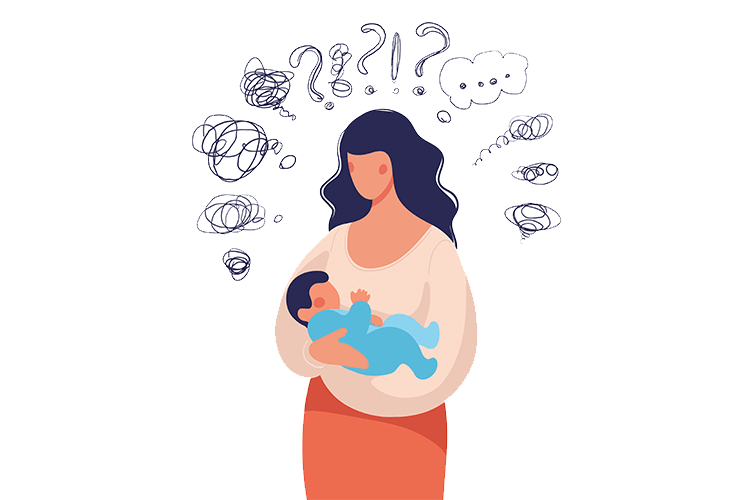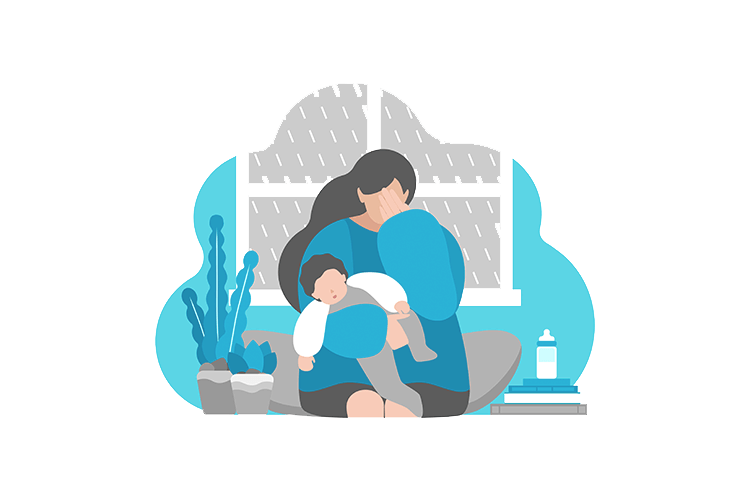Having a baby is supposed to be one of the most blissful times in a new parent’s life. Before the birth, many new moms imagine hours spent snuggling their newborn as they get to know them and fall in love. But for some who have recently given birth, that’s not always the case.

Postpartum Psychosis or Puerperal Psychosis occurs in the first one to four weeks after childbirth. Not unlike typical psychosis, symptoms include delusions, hallucinations, paranoid or suspicious feelings, and insomnia. Suffers might also experience a feeling of disconnect from their new baby, which in the worst of cases, may lead the new mom to want to harm her infant.
This type of psychosis comes on suddenly thanks to hormonal changes. Moms who have been diagnosed with bipolar disorder, have a close relative who suffers with bipolar disorder, have had previous episodes of psychosis, or experienced big changes in mood during their pregnancy are the most at risk.
Now, it’s important not confuse this syndrome with postpartum depression, which can leave the new mother feeling sad, anxious, and overwhelmed. Postpartum depression occurs in nearly half of all mothers, but postpartum psychosis is rarer, seen in just one in 20 new moms.
So, what can we do about it? Fortunately, Postpartum Psychosis is a temporary condition. If you are pregnant, don’t stop taking any prescribed psychiatric medications. It’s important to talk to your doctor about how you’re feeling emotionally and let him or her know if you’re at an elevated risk for Postpartum Psychosis. It’s also important to make your partner aware of what behaviors to look out for after the birth. If you’ve recently given birth, be sure to get as much rest as you can and don’t be afraid to enlist the help of family and friends with the new baby or around the house. See your doctor regularly and be honest about how you’re feeling.
If you or a loved one are currently experiencing signs of Postpartum Psychosis such as paranoia or delusions, call 911 immediately. Postpartum Psychosis is a serious illness that requires immediate treatment.


 The goal is to facilitate early identification of those experiencing extreme states in order to decrease the duration for untreated symptoms and reduce disruption to the young person’s psychosocial development through a collaborative, recovery oriented intervention.
The goal is to facilitate early identification of those experiencing extreme states in order to decrease the duration for untreated symptoms and reduce disruption to the young person’s psychosocial development through a collaborative, recovery oriented intervention.